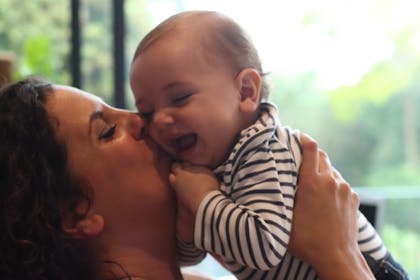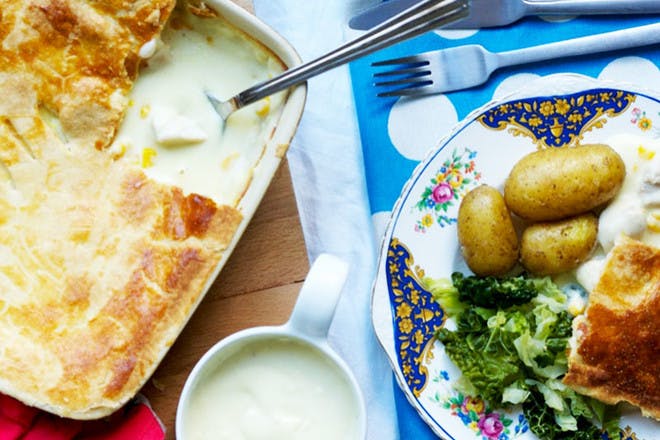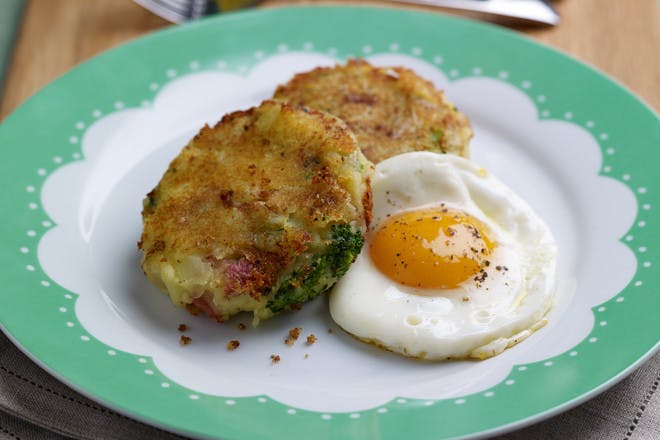Benefits and financial support for single parents in 2022

Making ends meet can be difficult when you have kids, especially if you're a single parent. Find out what benefits and financial support you're entitled to as a single mum or dad
If you are managing your family's budget as a single parent, you may be able to get help paying for your rent and other housing costs, childcare, food and some medical care. According to Citizen's Advice, Universal Credit has replaced many of the old benefits.
Other financial support for single parents includes the NHS Low Income Scheme, Council Tax reduction and Child Benefit payments.
In response to the ongoing cost of living crisis, the UK government has announced some additional measures that can help you pay your bills. These include:
- A £150 Council Tax rebate, which you do not have to pay back
- Reducing Universal Credit's taper rate from 63% to 55%, meaning that for every £1 you earn over your work allowance, your Universal Credit payment will be reduced by 55p
- Increasing Universal Credit's work allowance by £500 per year
- A £200 reduction in energy bills in Autumn 2022, which you will have to pay back over five years
If you have any questions about how your benefits could be affected, and whether you're entitled to more than you're getting, see the resources at the end of the article.
Otherwise, read on for more general information about what benefits you may be entitled to as a single parent ...
Single parent benefits: what you need to know about Universal Credit?
With the rollout of Universal Credit (UC), it’s likely that you’ll no longer be able to individually claim so-called legacy benefits – which includes housing benefit, tax credits and job seeker’s allowance. Instead, it’s more likely that you’ll need to make a claim for Universal Credit.
It’s far from straightforward, so don’t be disheartened – and don’t give up.
Faye Goldman from Gingerbread, a charity working with single parent families, says: ‘We know that single parent families’ finances can often be tight, so it’s important you claim what you’re entitled to.
‘It can be difficult to work out what benefits you are entitled to and exactly how much you'll receive – depending on your income, this may even change from month to month if you’re in work.
‘It’s going to take some time but do your research to find out how the system works and what is expected of you as a single parent – for example, the number of hours you work.
'Stick with it and get some advice by visiting Gingerbread’s website or calling our helpline.’
To help make things clearer, we’ve separated the advice in this article into two sections:
- Benefits for single parents if you’ve not claimed before (or have a change in circumstances)
- Benefits for single parents if you’re already claiming
Single parent benefits if you’ve NOT claimed before
Depending on your circumstances, as a single parent the welfare payments you may be eligible for include:
- Universal Credit
- Child Benefit
- Healthy Start vouchers
- NHS Low Income Scheme
- Free school meals
- Council Tax Reduction
- Widowed Parent's Allowance
The first step is to enter your details into a benefits calculator – you can find one on the Gingerbread website – to see what you might be entitled to.
The benefits you may be able to claim as a single parent include:
1 Universal Credit
Universal Credit is a relatively new benefit that has replaced six different income-based benefits, including Income Support.
It's already been introduced across the UK and, according to Faye at Gingerbread, this means if you are a new applicant, you will most likely need to apply for UC rather than individual benefits like housing benefits, tax credits or Jobseeker’s Allowance (JSA).
The eligibility criteria includes:
- you’re on a low income or currently out of work
- you’re aged over 18 (or, in some cases, aged 16-17*)
- you have £16,000 or less in savings
- you live in the UK
*In some cases, you can claim Universal Credit aged 16 or 17. Reasons include:
- you are responsible for a child
- you’re pregnant and it’s 11 weeks or less before your expected week of giving birth
- you’ve had a baby in the last 15 weeks
- you do not have parental support
Universal Credit - how much will I get?
Universal Credit is made up of a basic standard allowance.
- If you’re single and aged under 25 ... £265.31 a month
- If you’re single and aged over 25 … £334.91 a month
You may then receive extra amounts, depending on your circumstances: for example, you can claim money towards your housing costs and for the number of children you have as follows:
- Extra monthly amount for your first child ... £290.00 (born before 6 April 2017) or £244.58 (born on or after 6 April 2017).
- Extra monthly amount for your second child (and other eligible children)... £244.58
- Extra monthly amount if your child is disabled or severely disabled... £132.89 or £414.88
If you need help with childcare costs, you may be able to claim up to 85% of your costs (up to £646.35 for one child and £1,108.04 for two or more children).
The amount you'll get reduces as your income from employment increases.
Note that there's a two-child limit on Universal Credit. So if you have a third child born after 6 April 2017, you won't receive any extra for them, unless certain exceptions apply.
You can apply for Universal Credit online, although you might also have to attend an interview at a Jobcentre Plus.
2 Child Benefit
Every parent with responsibility for a child under 16 (or under 20 and in full-time education or training) can claim child benefit.
The amount you'll get is as follows:
- For your eldest child, or if you only have one child ... £21.80 per week
- For additional children ... £14.45 per child, per week
This is usually paid every four weeks, though as a single parent, you can ask for it to be paid weekly if you prefer.
If you earn more than £50,000, you may be taxed on the benefit.
You can apply for Child Benefit even if you’re already receiving legacy benefits.
Only one parent can get Child Benefit for a child, so if you're sharing custody, you'll need to discuss this with your child's other parent.
3 Healthy Start vouchers
The Healthy Start scheme is to help pregnant women and those with children under the age of four to buy basic foods, promoting healthy eating.
To qualify, you'll need to be claiming certain other benefits such as Income Support, JSA, Child Tax Credit or Universal Credit.
You'll get a weekly voucher that can be used for milk, fruit, veg and infant formula. You can also claim free vitamin supplements. These are worth:
- £4.25 every week of your pregnancy from the 10th week
- £8.50 a week for children under 1 year old
- £4.25 a week for children aged between 1 and 4 years old
The Healthy Start scheme does not run in Scotland. If you live in Scotland, use the similar Best Start Foods scheme instead.
4 NHS Low Income Scheme (LIS)
If you claim benefits or are on a low income, you may be eligible for help with healthcare costs, including prescriptions, dental and eye care.
Depending on your circumstances, you might be entitled to an HC2 certificate (full help) or an HC3 certificate (partial help).
If you're claiming certain benefits, including Income Support, Universal Credit and JSA, you don't need to apply for a certificate, as you'll automatically qualify for full help with health costs.
You can also apply for the NHS Low Income Scheme if you’re already receiving legacy benefits.
Don't forget that you're also entitled to free dental care and prescriptions if you have a baby under one – just show your Maternity Exemption Certificate.
5 Free school meals
All children can automatically get free school meals if they're in reception, year 1 or year 2 of a state school.
Older children might also be able to get free school meals if you get any of the following:
- Income Support
- Income-based Jobseeker’s Allowance
- Income-related Employment and Support Allowance
- Support under Part VI of the Immigration and Asylum Act 1999
- The guaranteed element of Pension Credit
- Child Tax Credit (provided you’re not also entitled to Working Tax Credit and have an annual gross income of no more than £16,190)
- Working Tax Credit run-on – paid for 4 weeks after you stop qualifying for Working Tax Credit
- Universal Credit
Check if you're eligible for free school meals.
6 Council tax reduction
As a single parent, you may be able to get a discount on your council tax.
Local councils decide their own qualifying criteria, so you'll need to ask your local housing authority for more information. You can find their contact details online.
You can also apply for council tax reduction if you’re already receiving legacy benefits.
7 Widowed Parent's Allowance
The Widowed Parents Allowance is being replaced by the Bereavement Support Payment.
You can apply for the Bereavement Support Payment if your partner passed away in the last 21 months.
The maximum is £350.00 a month and is based on how much your partner paid into National Insurance.
You can apply up to 21 months after your partner's death, but should aim to apply within the first three months so you can get the full amount available to you.
Apply by phone by calling the Bereavement Service helpline on 0800 151 2012.
You can only apply for the Widowed Parents Allowance (WPA) if your partner passed away before 6 April 2017, and the cause of death has just been confirmed.
The maximum is £126.35 a week and it is based on how much your partner paid in National Insurance. You must apply within three months of the date of death to avoid losing out on any money.
8 Free childcare for 3-4 year olds
All parents are entitled to 15 hours a week of free childcare for children aged 3-4.
You may be entitled to 30 hours a week of free childcare for your 3-4 year old if:
- you work (even if you're on leave)
- you receive incapacity benefit, severe disablement allowance, carer's allowance or employment and support allowance
AND you expect to earn at least the National Living Wage over the next three months (for example, £1,976.00 if you are over 23).
You can apply on the government website as soon as your child is two years and 36 weeks old.
9 Budgeting advance
If you have a sudden emergency expense (such as needing a new cooker, transport costs to keep your job, or funeral costs), you may be able to borrow at budgeting advance of up to £812.00 from the government, though you'll need to pay it back.
You can apply via your local Jobcentre Plus if all of the following apply:
- you’ve been getting Universal Credit, Employment and Support Allowance, Income Support, Jobseeker’s Allowance or State Pension Credit for 6 months or more (unless you need the money to help you start a new job or stay in work)
- you’ve earned less than £2,600 in the past 6 months
- you’ve paid off any previous Budgeting Advance loans
10 Cold weather payment
If you're getting certain benefits and have a child under five, or a disabled child, living with you, you may be eligible for extra money in cold weather.
If the weather drops below 0ºC for 7 days in a row between 1 November and 31 March, you'll be entitled to £25.00.
You should automatically receive this if you have a child under five or a disabled child, and are receiving any of the following benefits:
- Pension Credit
- Income Support
- income-based Jobseeker’s Allowance
- income-related Employment and Support Allowance
- Universal Credit
- Support for Mortgage Interest
If you think you should have received a cold weather payment, but you haven't, contact your local Jobcentre Plus, sign into your Universal Credit account, or call the Universal Credit helpline.
Benefits if you’re already claiming
For those of you who are already receiving benefits, we’ve got more information on:
- Income Support
- Jobseekers Allowance (JSA)
- Working Tax Credit
- Child Tax Credit
- Housing Benefit.
You may also be eligible for the benefits covered above, including Child Benefit, Healthy Start vouchers, NHS Low Income Scheme, Free school meals, Free childcare, Council Tax Reduction, Budgeting advance, Cold weather payments and Widowed Parent's Allowance.
1 Income support
Income support has been replaced by Universal Credit for most people. If you already receive income support, you will continue to do so if you fulfil all five of the following criteria:
- you're pregnant, or a carer, or a parent aged between 16 and 20 and in full-time education, or a lone parent to a child under five (or in some cases, unable to work due to illness or disability)
- you're between the ages of 16 and pension qualifying age
- you have a low income or no income, and less than £16,000 in savings
- you work less than 16 hours a week
- you live in England, Scotland or Wales.
Income Support - how much will I get?
If you're eligible for Income Support, you will receive a personal allowance:
- If you're a single parent aged 16-17 ... £61.05 per week
- If you're a single parent aged 18 or over ... £77.00 per week
2 Jobseeker's Allowance (JSA)
Once your child is five, you'll transfer from Income Support to JSA, assuming that you aren't already claiming Universal Credit. To be eligible to claim you need to be:
- Unemployed, or currently working less than 16 hours a week on average, and actively looking for work
- Aged 18 or over.
There are three types of JSA:
New-style Jobseeker’s Allowance
According to gov.uk, to be eligible you’ll need to have worked as an employee and paid enough Class 1 National Insurance contributions within the last two to three years.
Contribution-based Jobseeker’s Allowance
You cannot apply for this benefit anymore. If you are already receiving contribution-based Jobseeker's Allowance, you will keep receiving your payments until your eligibility ends.
Income-based Jobseeker’s Allowance
Again, you cannot apply for this benefit anymore. If you are already receiving income-based Jobseeker's Allowance, you will keep receiving your payments until your eligibility ends.
Other conditions apply so check the gov.uk website for more details on the 'new style' Jobseeker's Allowance.
Jobseeker's Allowance - how much will I get?
The amount you'll receive depends on your age.
- If you're under 25 ... up to £61.05 per week
- If you're 25 or over ... up to £77.00 per week
JSA: special rules for single parents
According to Gingerbread, there are a number of allowances made for single parents. These include:
- Having seven days’ notice before an interview rather than the usual 48 hours.
- Only needing to work school hours if your child is aged 13 or under.
- Being able to look for work that is less than 40 hours a week.
You apply for JSA through your local Jobcentre Plus, and will be given a work coach who can help you with things like filling in application forms and interview technique.
3 Working Tax Credit
If you're a single parent and working, you might be claiming Working Tax Credit if you work at least 16 hours a week. You must already be claiming Child Tax Credit.
How much you're allowed to earn depends on your circumstances. For instance, it'll be more if you pay for childcare.
The tax credits calculator will help you work out if you can claim, and what you'll receive. The basic amount is up to £2,070 per year, and goes up to £2,125 for single parents.
For most people, Working Tax Credit has now been replaced with Universal Credit.
4 Child Tax Credit
The Child Tax Credit has been replaced by Universal Credit for most people. According to gov.uk, you can only make a new claim if you already get Working Tax Credit.
If you're already claiming Child Tax Credit, how much you receive depends on how many children you have and when you started claiming the benefit.
If your claim started before 6 April 2017, you'll get:
- the basic amount of Child Tax Credit (known as the ‘family element’)
- the ‘child element’ for children born before 6 April 2017.
If your claim started on or after 6 April 2017, you'll only get the 'child element' for up to two children. The amounts you could receive are as follows ...
- Basic amount (family element) ... up to £545 per year
- For each child (child element) ... up to £2,935 per year
You could receive more if your child is disabled.
5 Housing Benefit
Housing Benefit can pay for some or all of your rent if you're on a low income or on benefits and have less than £16,000 in savings.
For most people, this benefit has been replaced by Universal Credit. You can only make a new claim if you are over the state pension age or living in supported, sheltered or temporary housing.
How much you can get depends on a variety of factors, such as your rent, income and circumstances. Contact your local council for more information.
More help for single parents
It's a complicated old process! Get a better picture of what you may be eligible for using one of the Government's approved benefits calculators: Turn2Us or entitledto.
The Child Maintenance Service and Gingerbread are also helpful resources.
If you’re a single parent living in Scotland, One Parent Families Scotland is a useful.
You can also contact your nearest Jobcentre Plus here.
You may be eligible for a charitable grant depending on where you live or your circumstances. Search for charitable grants on the Turn2Us website.
Need more help planning your family's finances? Read our money guides below, or get advice from other parents in the forum:
Related stories
CHAT: How much are household bills?
Divorce or separation: what happens to your home







